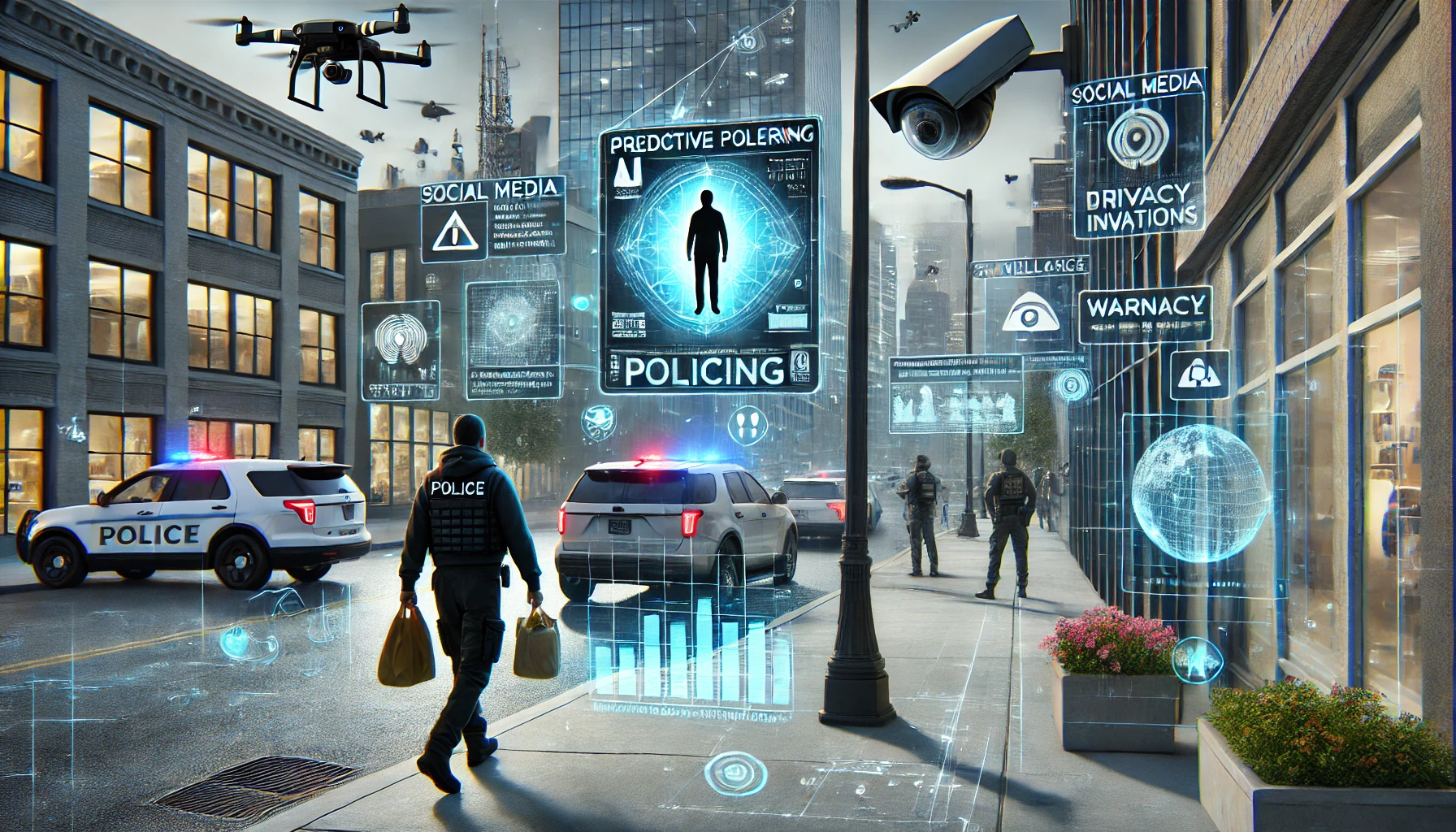AI-Powered Predictive Policing: Can Technology Keep Us Safe Without Invading Our Privacy?

AI in Law Enforcement: The New Crimefighter or Just Another Cop on the Block?
Picture this: you're walking down the street, minding your own business, when suddenly your local law enforcement's predictive AI system identifies you as a potential threat. No, you're not wearing a supervillain costume or plotting a bank heist — you're just carrying a bag of groceries. Welcome to the world of AI-powered predictive policing, where algorithms attempt to outsmart crime before it even happens. Sounds like something out of a sci-fi movie, right? Well, it's already happening. But as much as it promises to revolutionize law enforcement, there’s a little snag — actually, several big snags. Let’s dive into how AI is being used to fight crime and the messy complexities it brings along.
The Promise of Predictive Policing: Fewer Crimes, More Coffee Breaks?
Who wouldn’t love a world with less crime? AI-powered predictive policing uses machine learning algorithms to analyze mountains of data — from crime statistics to social media posts — to identify potential criminal activity. Theoretically, this means fewer crimes, more efficient use of resources, and, perhaps, more time for officers to enjoy their donuts. But beyond the allure of high-tech crime fighting, predictive policing raises the question: is this the future of law enforcement or a dystopian nightmare? Imagine algorithms targeting areas or individuals based on past crime data. Spoiler alert: it’s not always as straightforward as it sounds. In some cases, these systems have been criticized for reinforcing existing biases. In short, the AI may not be as impartial as we’d hope.
Bias in the Machine: When AI Isn’t So Neutral After All
One of the big promises of AI is its supposed objectivity. No more human error, no more prejudice, just cold, hard data-driven decisions. But, as it turns out, AI is only as neutral as the data it’s fed. If historical crime data shows disproportionate policing in certain neighborhoods, guess where the AI is going to focus its attention? Yup, you guessed it — right back to those same neighborhoods. This phenomenon, called ‘algorithmic bias,’ has been a hot topic, with critics warning that predictive policing could further marginalize already over-policed communities. It’s like giving a biased cop a fancy computer — the tool doesn’t fix the problem, it just makes the bias more systematic.
Privacy Concerns: Big Brother Meets RoboCop?
So, how much do you love your privacy? Because with predictive policing, the line between public safety and privacy invasion gets blurry. AI tools often rely on massive amounts of data, much of which comes from social media, public surveillance, and even online shopping patterns. Creepy, right? The use of this data can feel like a scene straight out of Orwell’s 1984, with ‘Big Brother’ keeping a digital eye on everything you do. What happens to individual freedoms when predictive policing becomes the norm? And more importantly, who watches the watchmen — or, in this case, who monitors the algorithms to ensure they're playing fair?
Accountability and Trust: Who's Policing the AI?
For predictive policing to work in the long run, the public needs to trust it. This means ensuring accountability at every level. But who holds the algorithm accountable when it makes a mistake or oversteps its bounds? Is there a 'court of appeal' for AI-driven decisions? Many experts argue that we need clear regulations and oversight to ensure that AI systems are transparent and their decisions can be challenged. After all, if a system wrongly identifies someone as a threat, that’s not just a minor inconvenience — it could mean unjust surveillance or even wrongful arrest. AI’s effectiveness in law enforcement ultimately depends on how well we can build trust in these systems, and, for now, that remains a work in progress.
The Future: Can We Balance Safety and Privacy?
Predictive policing powered by AI is here to stay — at least in some form. But the question remains: can we harness its potential while safeguarding civil liberties? It’s a tightrope walk between creating safer communities and preserving the freedoms that make those communities worth protecting in the first place. If we can ensure transparency, minimize bias, and protect individual rights, AI could revolutionize law enforcement for the better. But let’s be real: that’s a tall order. Whether we can strike that balance is still an open question, and only time — and some really smart regulation — will tell.
Will AI Be the Future of Law Enforcement, or Is It Just Another Overhyped Gadget?
The rise of AI in predictive policing stirs up plenty of debate, and it should. From concerns about bias and privacy to questions about accountability, this technology presents as many challenges as it does solutions. So, what do you think? Can we trust AI to predict crime and keep us safe without compromising our privacy, or is it just another tool that could do more harm than good? Share your thoughts on Reddit, or pass this article along to a friend who’s just as curious about the future of law enforcement!



